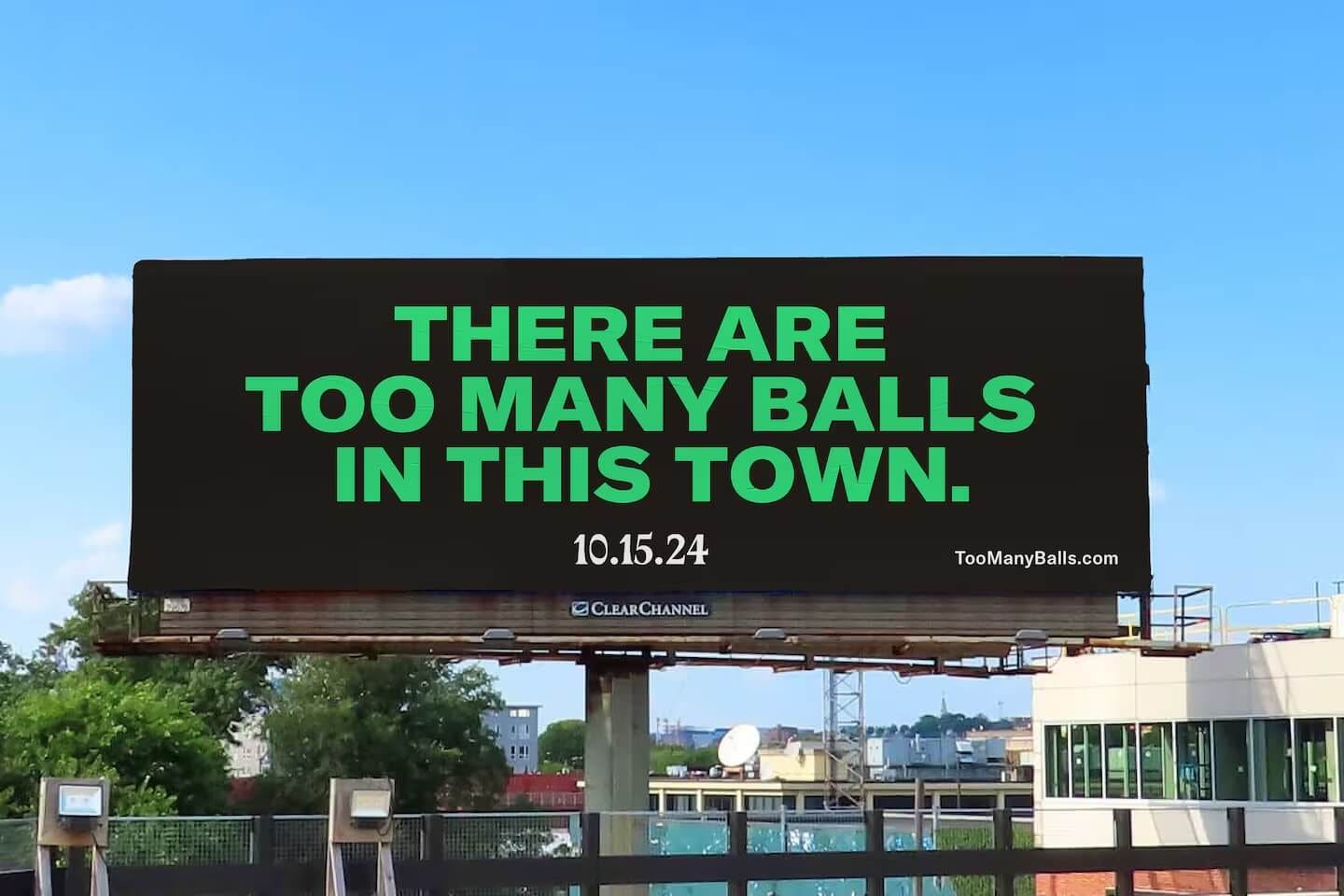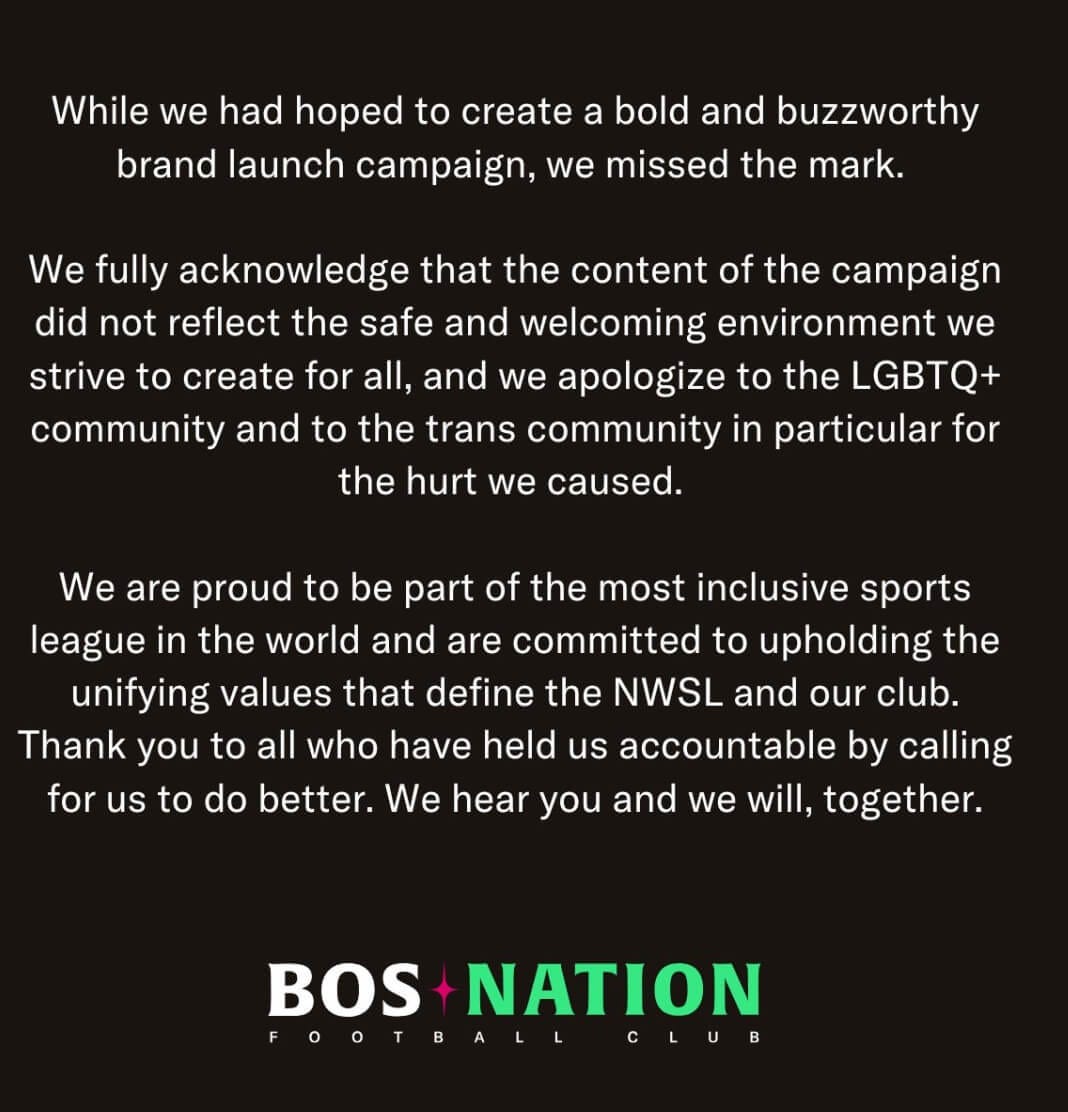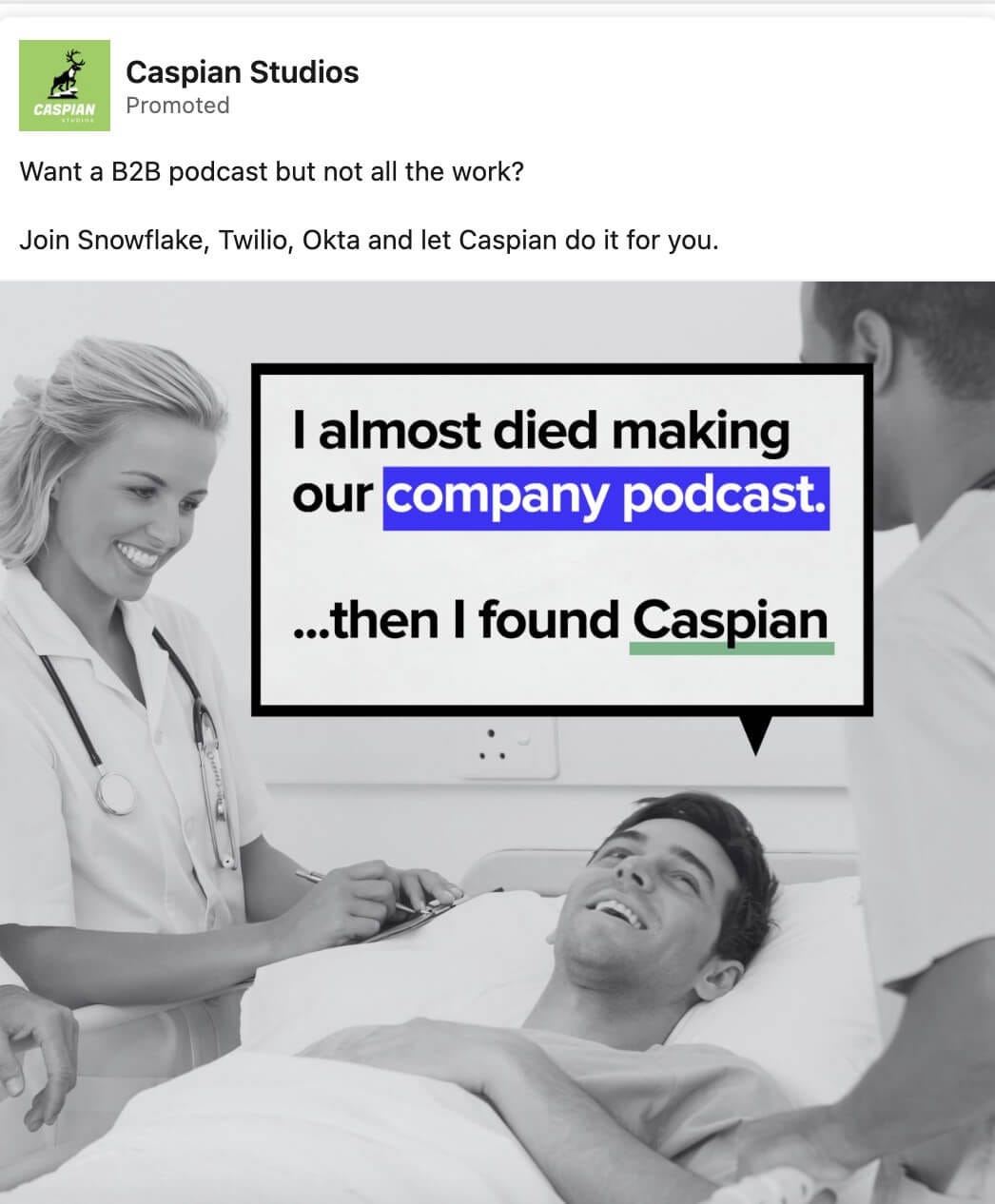Boston Team Apologizes for Doing Exactly What It Said It Would Do
Plus, there's actually a helpful way to think about whether to apologize for a marketing campaign
Hello Gobbledeers,
How’s it going? I didn’t want to spend a third newsletter in a row talking about apologies. But then there was another marketing-related apology, and I thought it would be useful to talk a bit more about apologies (instead of just saying “ha ha ha this was a stupid apology”). I other words, I’m sorry we’re talking about apologies again.
If you’re new to Gobbledy - welcome. In addition to writing this, I work with software companies on their messaging. If you need help with that, I’m at jared@sagelett.com - I’m happy to share how our 2-day workshop will transform your messaging, or visit us at Sagelett.com.
Live by the balls, die by the balls…
I’m sure I’ve mentioned here somewhere between once and 27 times that I’m originally from New Jersey.
Quick game: What’s the first thing that comes into your head when you hear someone is from New Jersey?
I think the answer really depends on:
Whether you are from New Jersey;
Whether you are from a place far from New Jersey;
Whether you are from somewhere near New Jersey.
If you are from New Jersey you are likely either thinking: “I bet they like a taylor ham, egg and cheese sandwich*” or “I wonder which town they go to down the shore.”
(*the “sandwich” is there for those of you not from New Jersey. Obviously, it’s just called a “taylor ham, egg and cheese.”)
If you’re from somewhere far from Jersey, you’re likely thinking, “I bet they like Bruce Springsteen.” Yes, we are legally obligated to.
If you’re from somewhere near New Jersey, you may be thinking, “I bet that guy’s an asshole.”
And that’s fine - it’s on-brand for us! We invented the “Jersey Slide,” where you are driving in the far left lane on a highway one-tenth of a mile before you need to exit on the right, and then you sliiiiiide over to the exit, cutting off everyone in your path. (In fairness, you needed to get off at the exit, whatreya gonna do?)
But those of us from New Jersey are kinda “assholes” in the generic sense. We’ve never really embraced that (besides having Chris Christie as our governor, and even he doesn’t seem like an asshole anymore…he just seems sad.)
But you know who HAS embraced the asshole branding?
People from Boston.
Well, I’m not sure THEY came up with the term “Masshole,” but they haven’t exactly shied away from it either.
To wit:
Heh, vanilla nut taps.
So that was the backdrop for (yet) another apology tour after the new Boston NWSL women’s soccer team launched by running these billboards:
The team thought that their Masshole future fans would appreciate the lowbrow humor here - the ad agency that created the campaign wrote on Instagram: “Thanks to our brave clients for having the guts to be wildly provocative with this launch.”
Womp womp.
So that’s the backdrop:
Folks from Boston have a “Masshole” reputation (perhaps to uphold, perhaps to overcome)
Maybe you’d call a client “brave” for running a campaign standing up for an under-represented group’s rights, but I’m not sure I’d call them “brave” for making a balls joke.
We live in a time where you really have to consider whether running a “wildly provocative” campaign is worth the grief you might cause/receive. I’m not sure that given the current state of things you can run a “provocative” campaign and not get some pushback (though “getting some pushback” is sorta the point of a “provocative” campaign, no? Like if you ran a provocative campaign and there was no reaction, it, by definition, wasn’t provocative. And if it DID get pushback - because you provoked it - why do you apologize, since getting that pushback was the point in the first place?) This is very confusing.
Just to make this clear: The agency & their client thought to themselves that Boston is the kinda place where people are thought of as maybe somewhere between lowbrow and “Masshole,” and so they came up with a campaign that is smack-dab in the middle of that continuum, then there was some amount of pushback, and then they apologized, though the thing they apologized for was, pretty literally, the thing they set out to do.
(2 other side notes:)
I’m the only person brave and provocative enough to note that the event to announce the launch of this team (and the balls campaign) was held at Dick’s House of Sport. I will not apologize for that.
It’s entirely possible the whole campaign is actually referring to this old 7 second clip of a Masshole saying the Boston Celtics are the balls:
So that’s that. And as you can imagine, the reaction to that campaign was not an appreciation for the provocation. The specific pushback isn’t really relevant here, but just know that, of course, the apology was forthcoming:
Please also note that they posted this apology to X/Twitter, the world’s least “safe and welcoming environment” anyone has ever strived to create for anyone.
My question here is - should all these companies be giving half-assed apologies in the first place? What’s gained by half-assedly saying you’ll do better? If an issue blows up (hello, Bud Light), the apology won’t help. And if it’s something like a coarse joke at the launch of a new team, why not just let it go and move on?
In my attempt to make Gobbledy an actual somewhat useful publication, I wanted to share a pretty helpful 4-question framework from an HBR article for how to decide whether to make a public apology for something, or whether to just let it go:
1. Was there a violation, whether real or perceived? This requires “managers to imagine the situation from different vantage points.” In this case, sure - there were people who felt the campaign struck a nerve with some communities in a way that may not have been obvious to others.
2. Was the violation core or noncore? “Are the responsibilities [being apologized for] central to a company’s products, services, and mission?” I’d argue in the case that it was not, but I could accept the argument that building a diverse fan base is core to the team’s operations and offending those potential fans would be core, and therefore require an apology.
3. How will the public react? “A violation committed by a large, powerful, or high-status organization… against a low-status, low-power person or group is more likely to engender public outrage.” Again, I think you could argue that the Boston team is, itself, kind of an underdog and so public reaction would dissipate quickly. But I could also be convinced that people see the team as being run by wealthy individuals, so an apology in this case would make sense.
4. Is the company willing to commit to change? “If they can’t or don’t want to do things differently in the future, the case for making an apology is weak, because it will sound hollow and unconvincing.”
Ah ha!
I actually found that little rubric to be helpful - something about all of these apologies felt a little, I dunno, off? And I thought it was the fact that they were making the apologies.
But it’s not - I can see why making an apology in this case can make sense for the organization. But are they “willing to commit to change?” Is a Boston sports team willing to not represent the vibes of the city they represent, and not have a chip on its shoulder and not be a little irreverent, even off-putting?
I guess, maybe? But the fact that they launched with this campaign suggests that they wanted their brand to align a bit with the stereotype of fans of that city’s teams. Which is fine! Good for them!
But it also makes the apology pretty insincere, and if you’re NOT going to change, then don’t make the apology in the first place. Just move on.
This team is a new venture, but if you’re NOT a new venture and you do something terrible and you need to apologize, there’s a template for that:
Remind people that they actually used to like you at some point before you stole their data/manipulated their newsfeeds/treated everyone like crap, etc. And I think this can actually work.
After Volkswagen had been - oops! - manipulating emissions data in their cars, they released this “hey, remember when we made quirky cars that you loved” ad that worked pretty well:
It mentions the scandal, but doesn’t apologize. Instead, it shows the outcome of the changes they’ve made - “In darkness we found the light” - and the new electric van they’re introducing. Smart - it showed a positive benefit for consumers that emerged from the scandal. I think that’s about as good as you can do.
And on the other end of the spectrum…
Facebook (of course).
I don’t even remember what the hell they’re apologizing here for - I’m sure they stole your data, or sold your data, or in some manner defiled your data or whatever. Who remembers?
But the ad says, “from now on, Facebook will do more to keep you safe, and to protect your privacy.”
I mean, they WON’T keep you safe or protect your privacy, but they’ll do more than they were doing before. And what they were doing before was selling your privacy. So they’ll do, y’know, less of that.
The rest of the ad is reminding you of all the stuff you loved about Facebook (they mention seeing that your boss wished you a happy birthday (?) ), but they also mention that “something happened” and the site was inundated with “spam, clickbait, fake news.”
Oh my God, I love “something happened.” Like if BP wrote, “you love driving around in cars that use our gas. Then something happened. And now you probably shouldn’t go fishing in the Gulf of Mexico.”
“Something happened.” Good stuff.
Anyway, the stock is up almost 300% since they ran that commercial, so what do I know?
This is a bad LinkedIn ad
(Thanks to reader FH for sharing that…)
As always, thanks for reading to the end. Like I mention each week, I get so much out of chatting with readers about marketing stuff. If you’d like to spend 25 minutes in marketing therapy (or whatever), here’s my Calendly link. I can’t believe only 1 person wanted to talk about Nobody Wants This.





To all of that, I say this: grow a pair.
Wait. Wait....
No idea what NWSL is and thinking/hoping maybe you mistyped NSFW.